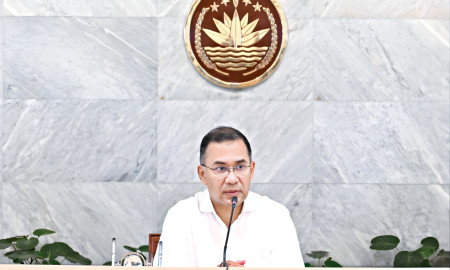Tips and Advice for HSC Chemistry Students

Dear HSC examinees of 2025, heartfelt greetings to you all! I hope you are doing well and staying healthy by the grace of Almighty Allah. To those feeling disheartened or restless, I urge you to cast aside despair and start anew from this moment. Despair weakens you and erodes self-confidence, while gratitude, contentment, and hard work keep you energized and refreshed.
At this stage, focus on quickly reviewing the highlighted sections of your textbooks and practicing one question each from the same types of MCQs and CQs (creative questions) that appeared in past board exams. This approach will help you master the entire syllabus in a short time. For those who have already covered all topics, aim to complete a full revision by June 20 with speed and precision.
As a chemistry teacher, I advise students who are fully prepared to continue revising all eight chapters—four from Chemistry Paper 1 and four from Paper 2. Don’t skip any chapter or topic during revision. Assuming that last year’s topics won’t reappear is a mistake, as creative questions can be framed differently from the same topic. Organic chemistry, which often contributes three creative questions and several MCQs, must not be overlooked, especially since it’s also critical for university admission exams. In Paper 1, qualitative chemistry and chemical changes often include mathematical questions, so focus on these, along with hybridization and polarization from Chapter 3, which are enjoyable to solve. In Paper 2, organic chemistry questions can be answered quickly with minimal risk of losing marks. Electrochemistry is a short chapter with fewer topics and some mathematical questions, while quantitative chemistry is almost entirely mathematical. Environmental chemistry is relatively easy, so you can confidently tackle any chapter from Paper 2.
For students lagging in chemistry, select important topics from each chapter based on questions from past board exams. Practice at least 10 creative questions and 100 MCQs per chapter within this limited time. With dedication, you can perform well, InshaAllah.
Dear students, excessive planning without action wastes valuable time. What you need now is to calm your restlessness and make the most of every moment. This requires avoiding certain habits and embracing others.
First, stay away from smartphones, laptops, and TVs. Avoid socializing for now, as it consumes time and negatively impacts your mindset. Stop staying up late to ensure you can wake up in the early hours. Our religion emphasizes sleeping after Isha prayer and waking around 2 or 3 a.m., a practice followed by our beloved Prophet (PBUH). Recent medical research also highlights the benefits of early sleep and early rising. Those who believe staying up late is the only way to cover the syllabus should understand that studying late at night, when you’re already exhausted, is less effective. The body craves deep sleep and rest after Isha, as confirmed by research. Late-night studying weakens immunity and reduces brain sharpness, making it harder to think creatively in the exam hall or recall familiar concepts.
If you feel sleep-deprived, take a short nap of up to 25 minutes in a quiet environment, either before or after noon. This “nap,” known as qaylullah in the Sunnah of the Prophet (PBUH), refreshes you instantly. However, avoid napping beyond 30 minutes, as it may lead to a deeper sleep cycle, requiring at least 90 minutes to feel rested, which could leave you fatigued if interrupted.
On the night before the exam, avoid studying under pressure and ensure at least 7 hours of sleep. This will keep your body, mind, and brain in optimal condition, making the exam experience more manageable and pleasant.








